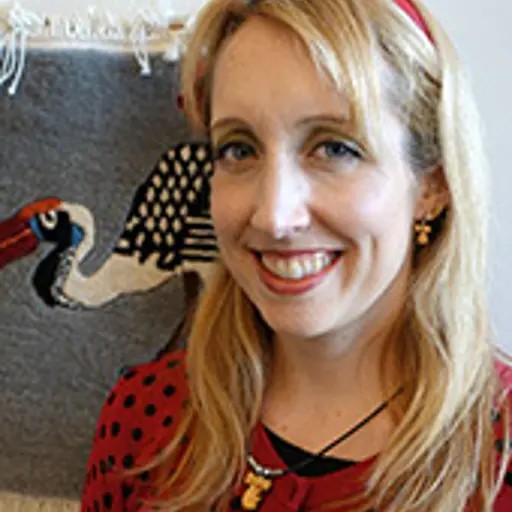Course syllabus adopted 2022-05-02 by Head of Programme (or corresponding).
Overview
- Swedish nameFourieranalys
- CodeMVE030
- Credits6 Credits
- OwnerTKTFY
- Education cycleFirst-cycle
- Main field of studyChemical Engineering with Engineering Physics, Mathematics, Engineering Physics
- DepartmentMATHEMATICAL SCIENCES
- GradingTH - Pass with distinction (5), Pass with credit (4), Pass (3), Fail
Course round 1
- Teaching language Swedish
- Application code 57142
- Maximum participants180
- Open for exchange studentsNo
- Only students with the course round in the programme overview.
Credit distribution
Module | Sp1 | Sp2 | Sp3 | Sp4 | Summer | Not Sp | Examination dates |
|---|---|---|---|---|---|---|---|
| 0105 Examination 6 c Grading: TH | 6 c |
|
In programmes
- TKTEM - ENGINEERING MATHEMATICS, Year 2 (compulsory)
- TKTFY - ENGINEERING PHYSICS, Year 2 (compulsory)
Examiner
 Julie Rowlett
Julie Rowlett- Professor, Analysis and Probability Theory, Mathematical Sciences
Eligibility
General entry requirements for bachelor's level (first cycle)Applicants enrolled in a programme at Chalmers where the course is included in the study programme are exempted from fulfilling the requirements above.
Specific entry requirements
The same as for the programme that owns the course.Applicants enrolled in a programme at Chalmers where the course is included in the study programme are exempted from fulfilling the requirements above.
Course specific prerequisites
Real analysis, Multivariable analysis, Linear algebra, Complex mathematical analysis.
Aim
The course introduces Fourier methods in the program. These methods are powerful mathematical tools in technology and science.
Learning outcomes (after completion of the course the student should be able to)
After completing the course, the student will be able to solve partial differential equations using separation of variables, eigenfunction and Fourier series expansions, eigenfunction expansions using Sturm-Liouville problems, as well as Fourier and Laplace transforms. In addition, the student will be able to apply the theoretical concepts of Hilbert spaces to solving physical problems. In this regard, the student will be able to determine, based on the geometry of the physical domain and the character of the equation, which orthogonal system, such as trigonometric functions, Bessel functions, or orthogonal polynomials, is best suited to solve the physical problem. The student will also be able to use Fourier series to compute sums, like the sum of 1/n^2. The student will learn how to use Fourier transforms to compute tricky integrals.
Content
The method of separation of variables. Trigonometric Fourier series and their convergence. Examples of initial and boundary value problems for partial differential equations: the heat equation, the wave equation, Laplace/Poisson's equation. Orthogonal systems of functions, completeness, Sturm-Liouville eigenvalue problems. Various solution techniques like homogenization, superposition and eigenfunction expansion. Bessel functions and orthogonal polynomials (Legendre, Hermite and Laguerre polynomials). Solution methods in spherical or cylindrical coordinates. Fourier transforms and their applications to partial differential equations. Signal analysis, discrete Fourier transforms and Fast Fourier transforms. Laplace transforms with applications.
Organisation
The course is organized in lectures and exercises (about 5h/week of each). Computerized hand-in assignments may occur. The course and the examination coincide for the programs F and TM.
Literature
Custom course book plus some additional material.
Examination including compulsory elements
Written exam with about 6 problems and 2 theory questions (5 hours).
The course examiner may assess individual students in other ways than what is stated above if there are special reasons for doing so, for example if a student has a decision from Chalmers about disability study support.
The course syllabus contains changes
- Changes to examination:
- 2022-05-02: Digital exam Changed to digital exam by Emilio
[0105 Exam 6,0 hp] Changed to digital examination - 2022-05-02: Digital exam Changed to digital exam by Emilio
[0105 Exam 6,0 hp] Changed to digital examination - 2022-03-03: Digital exam Changed to digital exam by vana
[0105 Exam 6,0 hp] Changed to digital examination
- 2022-05-02: Digital exam Changed to digital exam by Emilio
- Changes to module:
- 2022-05-02: Digital exam Changed to digital exam by Emilio
[0105 Examination 6,0 credit] Changed to digital examination - 2022-03-03: Digital exam Changed to digital exam by vana
[0105 Examination 6,0 credit] Changed to digital examination
- 2022-05-02: Digital exam Changed to digital exam by Emilio